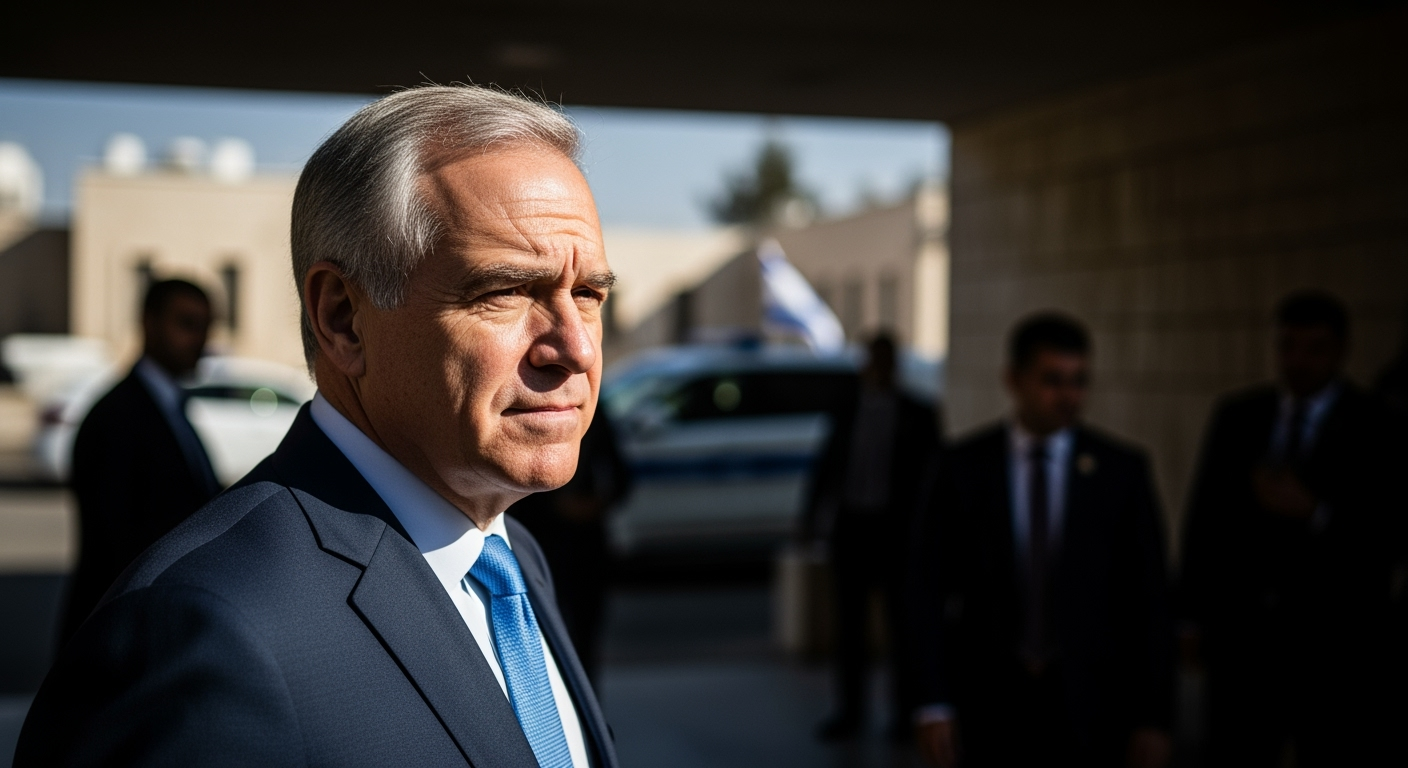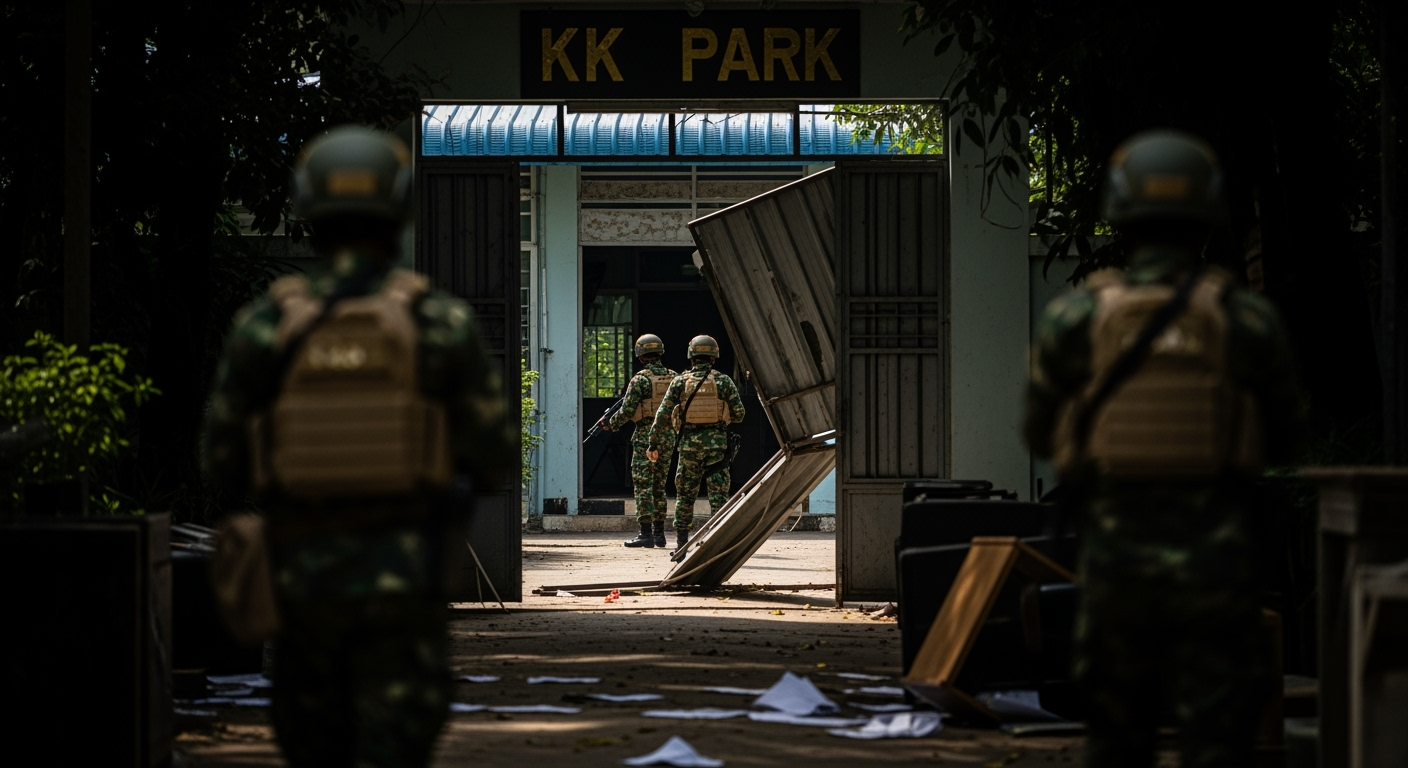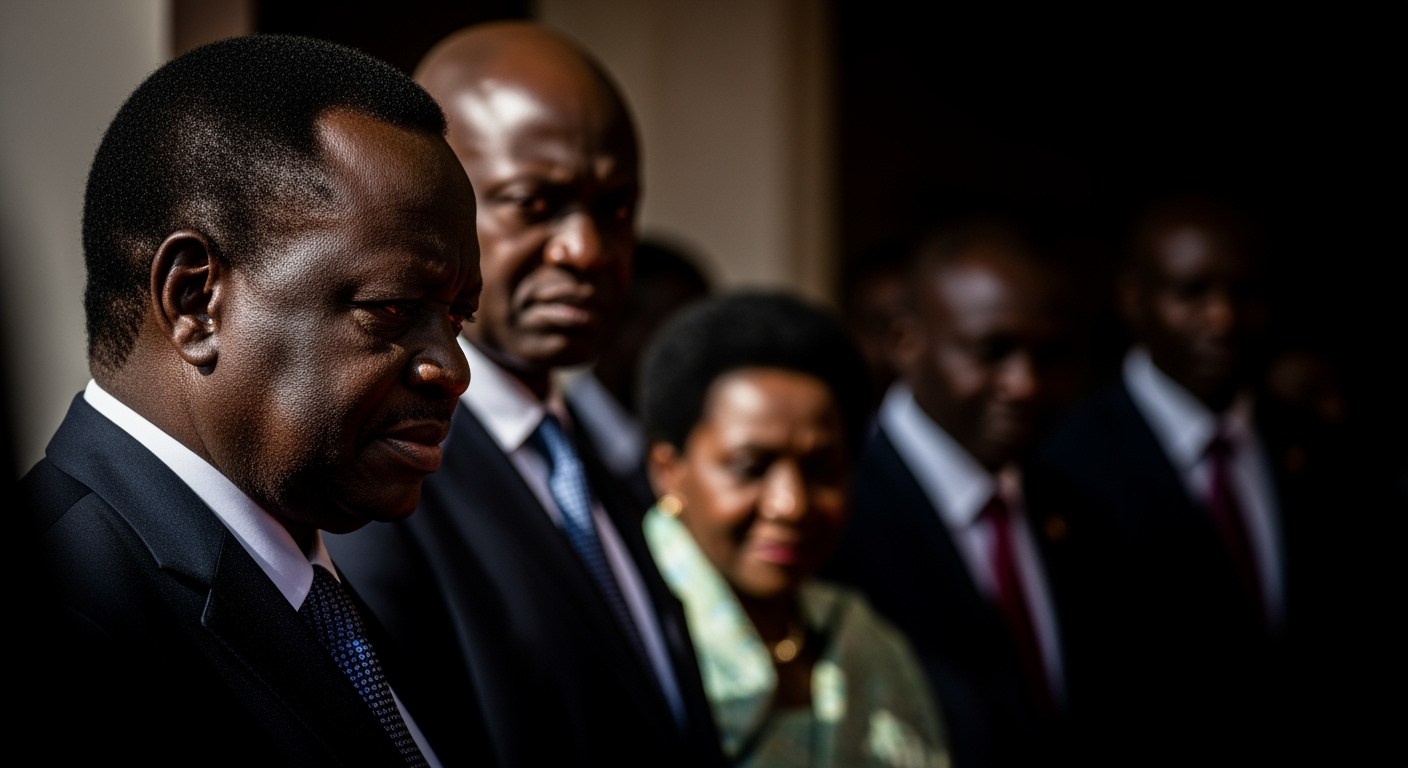Related Articles

Virginia Giuffre's Posthumous Memoir Intensifies Pressure on Prince Andrew and British Monarchy

Diplomatic Tightrope: Vance in Israel as Gaza Truce Teeters on the Brink





Kenya is steeped in a profound period of national mourning, having laid to rest one of its most iconic and consequential political figures, Raila Amolo Odinga. The former Prime Minister, a towering personality whose four-decade political journey was inextricably linked with the nation's democratic evolution, passed away on October 15, 2025, at the age of 80, in Kochi, India, following a cardiac arrest while undergoing medical treatment. His state funeral, a solemn and grand affair culminating on Sunday, October 19, 2025, at his ancestral home in Bondo, Siaya County, marked the end of an era and underscored the indelible mark he left on the East African nation.
A Nation United in Grief: The Final Rites
The culmination of a four-day national mourning period saw millions of Kenyans, dignitaries, and international figures converge to bid a final, poignant farewell to Odinga. The state funeral, an unprecedented honor for a non-president in Kenya's history, was characterized by military precision and widespread public participation. Proceedings began with a series of memorial services across the country, allowing citizens from various regions to pay their respects. The cortege made significant stops in Kisumu and his Opoda home, strongholds where Odinga commanded fervent support, eliciting emotional and overwhelming receptions from throngs of mourners. Streets were lined with individuals holding placards bearing his image and singing liberation songs that had become anthems of his political rallies, reflecting the deep emotional connection many Kenyans shared with their departed leader.
The main burial ceremony in Bondo was a dignified event, graced by President William Ruto, former President Uhuru Kenyatta, and numerous regional and international leaders, signifying Odinga's immense stature beyond national borders. In a powerful testament to his enduring influence, Odinga was accorded full military honors, including a solemn 17-gun salute, the sharp, rhythmic cracks of artillery fire echoing across the Kang'o ka Jaramogi grounds. The national flag that draped his casket was meticulously removed before clergy committed his soul to rest, followed by family and esteemed guests symbolically casting soil into the grave. The somber ceremony, which passed without major security incidents, represented a collective national moment of reflection, unity, and tribute to a man who had profoundly shaped Kenya's political landscape.
Raila Odinga: A Legacy Forged in the Crucible of Struggle
Born on January 7, 1945, in Maseno, Raila Amolo Odinga was the son of Kenya's first Vice President, Jaramogi Oginga Odinga, inheriting a rich political lineage steeped in the country's independence struggle. His own journey, however, would be defined by fierce activism and relentless advocacy for democratic reforms against authoritarian rule. He became a prominent figure in the push for multi-party democracy in the late 1980s and early 1990s, a struggle that often came at great personal cost. Odinga endured prolonged periods of detention without trial and exile during the one-party rule of President Daniel arap Moi, solidifying his image as a fearless champion of human rights and political freedoms.
Upon the reintroduction of multi-party politics, Odinga's political career flourished, though it was consistently marked by both triumphs and setbacks. He served as a Member of Parliament for Lang'ata Constituency from 1992 to 2013 and held ministerial portfolios, including Minister of Energy and Minister of Roads, Public Works and Housing. His tenure as Prime Minister from 2008 to 2013, a position created as part of a power-sharing agreement following the disputed 2007 presidential election, showcased his capacity for governance, albeit within a complex political arrangement.
Odinga's quest for the presidency was a persistent theme throughout his political life, contesting the highest office five times—in 1997, 2007, 2013, 2017, and 2022—each attempt marked by allegations of electoral fraud. Despite never achieving the presidency, his campaigns galvanized millions and consistently challenged the political establishment, ensuring that issues of governance, electoral integrity, and social justice remained at the forefront of national discourse. His influence extended to critical constitutional reforms, playing a pivotal role in the promulgation of the 2010 constitution, a landmark achievement for democratic governance in Kenya.
A Nation's Mourning and Tributes to a "Giant of Democracy"
The news of Odinga's passing evoked an immediate outpouring of grief and tributes from across Kenya and the international community. President William Ruto, despite a long history of political rivalry, declared seven national days of mourning and hailed Odinga as a "once-in-a-generation leader," a "giant of democracy," and a "tireless warrior of good governance". The President underscored Odinga's profound commitment to justice, pluralism, and democratic reform, acknowledging the indelible mark he left on Kenya and the African continent. Other notable figures, including former President Uhuru Kenyatta, also offered heartfelt eulogies, recognizing Odinga as "a beacon of peace, democracy, and human rights". International leaders, including the Prime Minister of India and the presidents of Ethiopia and Tanzania, also extended their condolences, emphasizing his stature as a pan-Africanist and statesman.
Beyond official pronouncements, ordinary Kenyans demonstrated a deep sense of loss. In his political strongholds, the grief was palpable, with many viewing him as a liberator and the voice of the voiceless. Mourners recounted how Odinga taught them the importance of fighting for their rights, underscoring the deep resonance of his activism with the citizenry. His passing prompted a moment of collective introspection, reflecting on the arduous journey towards a more democratic and just society that he so passionately championed.
Enduring Influence on Kenya's Political Fabric
Raila Odinga's departure leaves a significant void in Kenya's political landscape. His consistent agitation for reforms contributed substantially to the dismantling of authoritarian structures and the institutionalization of multi-party democracy and constitutionalism. He cultivated a fiercely loyal base across ethnic lines, transforming political discourse and mobilizing citizens around issues that transcended narrow communal interests. Even in his final years, his influence remained formidable, as evidenced by the political pact he signed with President Ruto in March 2025, which aimed to "steady the country" after months of anti-government protests.
Odinga's political career was not without its controversies and critics, who sometimes viewed him as an eternal agitator thriving on populism. Yet, few could dispute his ability to command public attention, inspire movements, and consistently challenge the status quo. His legacy is thus a complex tapestry of resilience, resistance, and reform, characterized by an unyielding pursuit of what he believed was a better, more equitable Kenya. His transition into continental politics, including a bid for the African Union Commission chairmanship in early 2025, further highlighted his aspiration to impact broader African governance.
The final farewell to Raila Odinga is not merely the closing chapter of a remarkable life but also a pivotal moment for Kenya. The nation now faces the challenge of upholding the democratic ideals he championed and continuing the struggle for justice and good governance without his direct, powerful presence. His life's work serves as a powerful reminder of the enduring importance of principled opposition, constitutionalism, and the relentless pursuit of a more inclusive society. Though Odinga has departed, his ideals, his struggles, and his vision for a better Kenya are expected to continue guiding the nation.